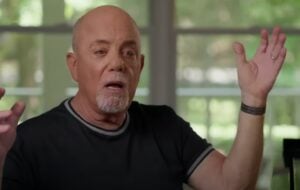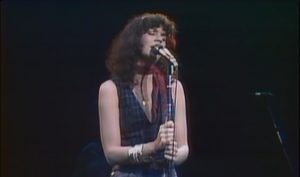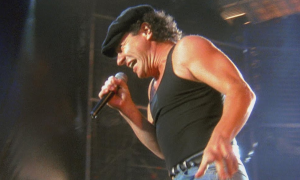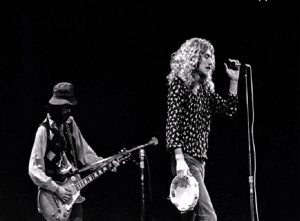1970s Musicians Side By Side With Their Sons On The Same Age

via DoYouRemember? / Youtube
Musical talent often runs deep, and the 1970s gave us a glimpse of artists whose legacies extended beyond their own careers. These musicians not only defined an era but also passed down their passion and creativity to the next generation.
This article takes a closer look at legendary artists from the ’70s and compares them to their sons of the same age. Seeing these parallels offers a fresh perspective on how musical talent evolves while honoring family ties.
From striking resemblances to unique approaches to the craft, these father-son pairs reveal both shared traits and distinctive paths. Their stories highlight the enduring impact of music across generations.
Ozzy Osbourne and Jack Osbourne
Ozzy Osbourne, known as the “Prince of Darkness,” was the frontman for Black Sabbath and a quintessential figure in rock music. His raspy voice, outrageous antics, and larger-than-life persona made him a household name. In contrast, his son Jack Osbourne, born in 1985, has carved out his niche in entertainment through reality TV and documentary production rather than music.
While Jack may not share his father’s musical talents, he embodies a similar fearlessness and willingness to explore unconventional paths. Despite their different careers, both Ozzy and Jack exhibit a unique charm that resonates with fans. Jack’s role in shows like The Osbournes showcased a more relatable side of the Osbourne family, while Ozzy’s rock star image often overshadowed his personal struggles.
Their contrasting approaches highlight how familial connections can influence individual choices, showcasing that while they may walk different roads, the Osbourne legacy remains strong.
Mick Jagger and James Jagger
Mick Jagger, the legendary frontman of The Rolling Stones, is synonymous with rock ‘n’ roll energy and charisma. His son James Jagger, born in 1985, bears a striking resemblance to his father with similar facial features and an artistic flair.
While Mick captivated audiences with his dynamic performances, James has pursued acting, notably starring in HBO’s Vinyl, which explored the music industry’s vibrant history. Though James’s career path diverges from his father’s musical legacy, he still channels that creative spirit into his work. Their personalities differ significantly; James is more reserved compared to Mick’s exuberance.
Nevertheless, both share a passion for artistic expression that transcends generations. James’s quieter approach allows him to carve out his identity while still honoring his father’s influence.
Paul McCartney and James McCartney
Paul McCartney is celebrated as one of the most influential musicians of all time, known for his work with The Beatles and beyond. His son James McCartney, born in 1977, shares not only physical traits but also a passion for music.
While Paul’s career has been characterized by global fame and chart-topping hits, James has taken a more understated approach to his musical endeavors. James’s songwriting reflects a personal touch that resonates with fans familiar with his father’s work. Although he may not have achieved the same level of fame as Paul, he has successfully established himself as an artist in his own right.
This generational connection illustrates how talent can evolve while maintaining its essence; James continues to honor his father’s legacy through heartfelt music that speaks to personal experiences.
George Harrison and Dhani Harrison
George Harrison, known as the “quiet Beatle,” was revered for his spiritual outlook and profound songwriting. His son Dhani Harrison, born in 1978, carries forward this legacy with a focus on introspective music that echoes George’s style.
While George was known for hits like “Here Comes the Sun,” Dhani embraces modern influences while paying homage to his father’s artistry. Dhani’s music reflects a blend of contemporary sounds infused with the thoughtful lyricism characteristic of George’s work. He embodies a similar humility and preference for letting his art speak for itself rather than seeking the spotlight.
This connection demonstrates how familial bonds can inspire creativity across generations while allowing for individual expression within that framework.
Phil Collins and Simon Collins
Phil Collins is renowned for his contributions to rock music as both a drummer and vocalist. His son Simon Collins, born in 1976, inherited not only Phil’s musical talent but also a passion for drumming.
Simon has ventured into progressive rock and electronic genres, showcasing a modern interpretation of the rhythmic prowess associated with his father’s work. While Simon’s musical journey differs from Phil’s mainstream success with Genesis and solo projects, he has carved out a unique identity within the industry. His collaborations reflect an evolution of sound that honors Phil’s influence while establishing Simon as an artist in his own right.
This father-son duo exemplifies how musical heritage can inspire innovation while retaining core elements of family tradition.
Rod Stewart and Sean Stewart
Rod Stewart is known for his distinctive voice and flamboyant style that defined rock in the 70s. In contrast, his son Sean Stewart, born in 1980, presents a different aesthetic altogether—more aligned with contemporary entertainment trends than rock stardom.
While Rod became an icon with hits like “Maggie Mae,” Sean has explored reality TV rather than pursuing a direct musical career. Despite their differences in appearance and career paths, Sean embodies some of Rod’s charismatic qualities. His personality reflects a blend of rebellion and charm reminiscent of his father’s youthful spirit.
This divergence illustrates how family ties can manifest in various forms of expression while still retaining an underlying connection to shared heritage.
John Lennon and Sean Lennon
John Lennon was not only a musical icon but also a revolutionary figure whose messages of peace resonated globally. His son Sean Lennon, born in 1975, reflects aspects of this legacy through a quieter yet impactful approach to music.
While John’s activism was loud and bold during the 70s, Sean has opted for introspection in both life and art. Sean’s artistic journey showcases his individuality while honoring his father’s spirit through thoughtful compositions that carry echoes of John’s dreamy quality.
Despite facing personal challenges following John’s tragic death when Sean was just five years old, he has cultivated a successful career as a composer and songwriter without merely replicating John’s style.
Bob Dylan and Jakob Dylan
Bob Dylan is celebrated as one of the most significant songwriters of all time; his poetic lyrics have shaped music history since the 1960s. His son Jacob Dylan mirrors this legacy with rugged good looks reminiscent of Bob’s younger days while forging his own path through music with The Wallflowers.
Jacob has successfully established himself as an artist distinct from Bob yet influenced by him—his songwriting reflects similar themes found in Bob’s work but is presented through Jacob’s unique lens.
This relationship highlights how creativity can be inherited yet transformed into something new across generations.
David Bowie and Duncan Jones
David Bowie was a master of reinvention, known for his eclectic style and boundary-pushing music that spanned genres and decades. From his early days as Ziggy Stardust to his later work, Bowie captivated audiences with his unique sound and theatrical performances. His ability to evolve artistically while maintaining a distinct identity made him a cultural icon.
Duncan Jones, born in 1971, has pursued a career in film rather than music, showcasing his artistic talents through directing and producing. While Duncan may not have followed directly in his father’s musical footsteps, he embodies the same spirit of innovation that characterized Bowie’s work.
His films, such as Moon and Source Code, reflect a thoughtful approach to storytelling, much like Bowie’s lyrical depth. Though their paths diverge, Duncan’s creative endeavors continue to honor his father’s legacy while establishing his own unique voice in the entertainment industry.











